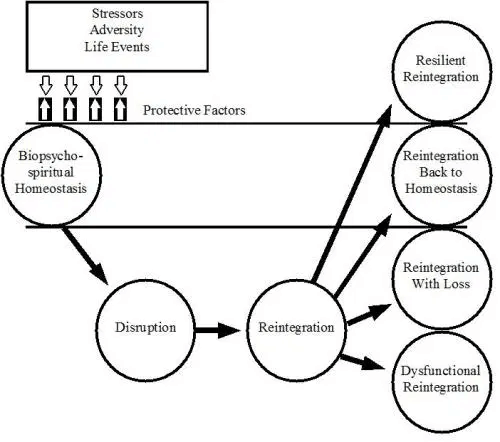
Editorial by Joseph J Horak, PhD, President, Family Business Solutions, Grand Rapids, USA; Entrepreneur in Residence and Honorary Teaching Fellow, Lancaster University Management School, Lancaster, UK
A Portrait of Dysfunction in a Family Business
Disconsolate and deflated, Rogen set his glasses down on his desk and began rubbing his eyes, hoping to rub away some of the exhaustion. The rift between Lester and Amelia was taking a toll on him. He once thought they would be the perfect fit to lead the family business, going so far as to recommend them to the Board of Directors. As young adults, they quarrelled from time to time, but for the most part, they got along better than the rest of the Cooper family.
Rogen, who had worked as an advisor to the family business for two decades, felt somewhat responsible for its current dysfunction. However, he did not know how to respond to the unravelling of Amelia and Lester’s relationship. An excerpt from Tolstoy kept running through his head: “All happy families resemble one another, each unhappy family is unhappy in its own way.”
The Ongoing Search for Resiliency
Many consultants face similar situations in their work with multigenerational family businesses. The question remains: how can consultants respond to the deepening patterns of unhealthy conflicts that weaken relationships and threaten family businesses?
In more resilient families, conflict can be constructive, resulting in more robust dialogue. For families like the Coopers, however, these same interactions can become poisonous and threaten to destroy the family and the business. Resiliency is the differentiating factor.
To start with, consultants like Rogen can help families identify their strengths and weaknesses in relation to the key aspects of resiliency. Psychologists define resiliency as the ability to not only cope with stress but also grow stronger because of it.
Early studies on resiliency focused on trying to understand how some children, despite growing up in extraordinarily difficult situations, become productive, healthy adults. Later research began to focus on the interactions between individuals, their families and larger systems in society. Research on resiliency is part of a larger movement in psychology called Positive Psychology. Previously, psychologists studied problems and psychopathology, but researchers like Martin Seligman and others realised that understanding psychological health is of equal or even greater significance.
The Bigger Picture
Perhaps Tolstoy’s observation, felt so keenly by the fictional consultant Rogen, could help him understand the best path to take. If Rogen were aware of the current metamodel of resiliency, it would enable him to think more clearly about the context of the conflict between Amelia and Lester.
Amelia had a second miscarriage after turning 38. She and her husband are worried they might not be able to have a child. Last year, Lester’s wife left him for another man, and he is locked in a bitter divorce. To exacerbate the situation, the Coopers’ family business, which manufactures paint, is under pressure because of two new entrants to the UK market, and sales are starting to slump. Both Amelia and Lester have been disrupted by the stressors they are facing. What Richardson labelled their Biopsycho-spiritual Homeostasis has been put out of balance. Neither can reintegrate these losses and begin to reach a level above Dysfunctional Reintegration (see below). Their ability to successfully reintegrate and function at a higher level (i.e., their potential for resiliency) can be measured by the Family Business Resiliency Assessment (FBRA).

The Five Dimensions of Resiliency
The FBRA measures five dimensions related to reaching Richardson’s Resilient Reintegration level. These dimensions are:
-
Cohesion (How do families maintain closeness, work out difficulties, include everyone and show respect?).
-
Organised Adaptive Approach (Are roles and expectations clear? Can we work well together? Can we change or get help when needed?)
-
Problem-Solving Communication (Can we effectively solve problems, even when difficult emotions are involved?).
-
Affirming Belief Systems (Do we have similar worldviews? Can we see the good in others? Do we show we are loyal and committed?)
-
Emotional Portfolio (Have we created the emotional deposits into our relationship accounts? Can we play and feel a sense of pride in the family?)
Rogen could use this model and the five dimensions of attaining resiliency to his advantage. For example, he could request that Lester and Amelia take the FBRA to increase their awareness of their strengths and weaknesses in regard to their resiliency potential. When family members share the results of this test, it can increase their understanding of and empathy towards each other. If their results are high, they may be able to use their strengths to weather the difficulty in their lives. If they are lower, the results might suggest the need for a behavioural consultant to help them work through the areas of weakness. The tool can also be used to assist consultants in situations where a family member may need to be removed from the business.
Becoming Stronger
Because most family business advisors, like Rogen, are trained in disciplines other than psychology or family science, tools like the FBRA are indispensable in identifying specific areas of strength or weakness. These tools have the potential to increase communication, help families gain insight into deeper issues and enable them to resolve them on their own. Additionally, these tools can increase the willingness of a family to seek out the assistance of a behavioural consultant who can help them work on their capacity for resiliency.

Joe has taught graduate-level courses in family theory for several universities in Michigan. For eight years, he taught family business at the Seidman College of Business at Grand Valley State University where he also directed the Family Owned Business Insitute. Joe is a licensed psychologist providing clinical and consulting services with his wife (who is also a psychologist) in Grand Rapids, Michigan, USA.
Related Articles:
Glenn E. Richardson (2002). The metatheory of resilience and resiliency. Journal of Clinical Psychology, 50, 307-321.
Joseph J. Horak and Robert E. Lee, III (2011). Resiliency in Family Businesses: Contributions from Family Science. International Journal of Business and Social Science, 2(9), 7-9.









